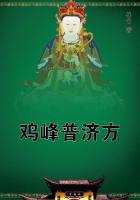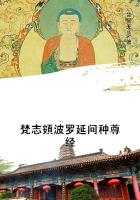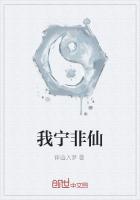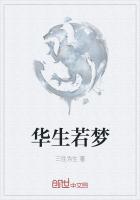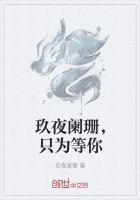Therefore, we may call him the Robustious Philistine. This man will cut the leaves of his own or his friend's volumes with the butter-knife at breakfast. Also he is just the person wilfully to mistake the double sense of the term 'fly-leaves,' and to stick the 'fly-leaves' of his volumes full of fly-hooks. He also loves dogs'-ears, and marks his place with his pipe when he shuts a book in a hurry;or he will set the leg of his chair on a page to keep it open. He praises those who tear off margins for pipe-lights, and he makes cigarettes with the tissue-paper that covers engravings. When his books are bound, he sees that the margin is cut to the quick. He tells you too, that 'HE buys books to read them.' But he does not say why he thinks it needful to spoil them. Also he will drag off bindings--or should we perhaps call this crime [Greek text], or brutality, rather than mere vice? for vice is essentially human, but to tear off bindings is bestial. Thus they still speak of a certain monster who lived during the French Revolution, and who, having purchased volumes attired in morocco, and stamped with the devices of the oligarchs, would rip off the leather or vellum, and throw them into the fire or out of the window, saying that 'now he could read with unwashed hands at his ease.' Such a person, then, is the man indifferent to books, and he sins by way of defect, being deficient in the contemplative virtue of book-loving. As to the man who is exactly in the right mean, we call him the book-lover. His happiness consists not in reading, which is an active virtue, but in the contemplation of bindings, and illustrations, and title-pages.
Thus his felicity partakes of the nature of the bliss we attribute to the gods, for that also is contemplative, and we call the book-lover 'happy,' and even 'blessed,' but within the limits of mortal happiness. But, just as in the matter of absence of fear there is a mean which we call courage, and a defect which we call cowardice, and an excess which is known as foolhardiness; so it is in the case of the love of books. As to the mean, we have seen that it is the virtue of the true book-lover, while the defect constitutes the sin of the Robustious Philistine. But the extreme is found in covetousness, and the covetous man who is in the extreme state of book-loving, is the biblioklept, or book-stealer. Now his vice shows itself, not in contemplation (for of contemplation there can be no excess), but in action. For books are procured, as we say, by purchase, or by barter, and these are voluntary exchanges, both the seller and the buyer being willing to deal. But books are, again, procured in another way, by involuntary contract--that is, when the owner of the book is unwilling to part with it, but he whose own the book is not is determined to take it. The book-stealer is such a man as this, and he possesses himself of books with which the owner does not intend to part, by virtue of a series of involuntary contracts. Again, the question may be raised, whether is the Robustious Philistine who despises books, or the biblioklept who adores them out of measure and excessively, the worse citizen? Now, if we are to look to the consequences of actions only (as the followers of Bentham advise), clearly the Robustious Philistine is the worse citizen, for he mangles, and dirties, and destroys books which it is the interest of the State to preserve. But the biblioklept treasures and adorns the books he has acquired; and when he dies, or goes to prison, the State receives the benefit at his sale. Thus Libri, who was the greatest of biblioklepts, rescued many of the books he stole from dirt and misuse, and had them bound royally in purple and gold. Also, it may be argued that books naturally belong to him who can appreciate them; and if good books are in a dull or indifferent man's keeping, this is the sort of slavery which we call "unnatural" in our POLITICS, and which is not to be endured. Shall we say, then, that the Robustious Philistine is the worse citizen, while the Biblioklept is the worse man? But this is perhaps matter for a separate disquisition."This fragment of the lost Aristotelian treatise "Concerning Books,"shows what a difficulty the Stagirite had in determining the precise nature of the moral offence of the biblioklept. Indeed, both as a collector and as an intuitive moralist, Aristotle must have found it rather difficult to condemn the book-thief. He, doubtless, went on to draw distinctions between the man who steals books to sell them again for mere pecuniary profit (which he would call "chrematistic,"or "unnatural," book-stealing), and the man who steals them because he feels that he is their proper and natural possessor. The same distinction is taken by Jules Janin, who was a more constant student of Horace than of Aristotle. In his imaginary dialogue of bibliophiles, Janin introduces a character who announces the death of M. Libri. The tolerant person who brings the sad news proposes "to cast a few flowers on the melancholy tomb. He was a bibliophile, after all. What do you say to it? Many a good fellow has stolen books, and died in grace at the last." "Yes," replies the president of the club, "but the good fellows did not sell the books they stole . . . Cest une grande honte, une grande misere."This Libri was an Inspector-General of French Libraries under Louis Philippe. When he was tried, in 1848, it was calculated that the sum of his known thefts amounted to 20,000 pounds. Many of his robberies escaped notice at the time. It is not long since Lord Ashburnham, according to a French journal, "Le Livre," found in his collection some fragments of a Pentateuch. These relics had been in the possession of the Lyons Library, whence Libri stole them in 1847. The late Lord Ashburnham bought them, without the faintest idea of Libri's dishonesty; and when, after eleven years, the present peer discovered the proper owners of his treasure, he immediately restored the Pentateuch to the Lyons Library.

